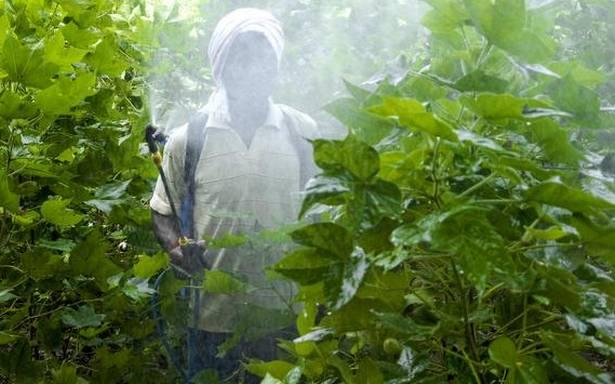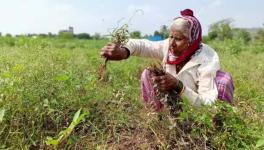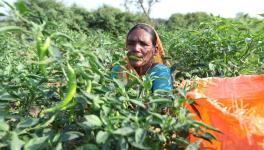Three Maharashtra Farmers Sue Syngenta in Switzerland for Pesticide Poisoning

Image Courtesy: The Hindu Business Line
On September 17, three farmers from Maharashtra’s Yavatmal district filed a lawsuit in a civil court in Basel, Switzerland, seeking monetary compensation from agrochemical giant Syngenta firm. Two of the applicants are women farmers who claim they have lost their husbands to poisoning due to spraying Syngenta’s Polo pesticide on their cotton fields in 2017. The third applicant himself is a farmer who survived the alleged poisoning.
In 2017, over 700 cotton farmers and agricultural workers were hospitalised complaining of pesticide poisoning in the state’s Vidarbha region and at least 23 farmers died in Yavatmal alone. Majority of the victims belonged to Tribal communities.
Swiss lawyer Silvio Riesen, one of the Farmers’ counsel told BusinessLine that the claims in the Basel court are that the Syngenta pesticide is deficient according to Swiss product liability laws and the company did not inform the farmers sufficiently about the risks, resulting in poisoning.
Community platform Maharashtra Association of Pesticide Poisoned Person (MAPPP), along with NGOs Pesticide Action Network India (PAN India), Asia Pacific (PAN AP) and the European Center for Constitutional and Human Rights (ECCHR) and Swiss NGO Public Eye are supporting the lawsuit and have earlier documented the fate of 51 victim families.
In a joint statement, the organisations said that 51 families had filed a specific instance at the Swiss Organisation for Economic Co-operation and Development (OECD) National Contact Point, demanding Syngenta to “refrain from selling hazardous pesticides to small-scale farmers in India that require Personal Protective Equipment (PPE) and for which – like in the case of Polo – no antidote is available in case of poisoning. In addition, the company should pay compensation to the 51 victim families for treatment costs and loss of income.”
Polo pesticide, which contains the active ingredient ‘Diafenthiuron', was banned in Switzerland in 2009.
“According to official documents, the police recorded 96 cases of poisoning linked to Syngenta’s Polo, two of which led to fatalities,” said Narasimha Reddy of PAN India. He visited the victim patients in Yavatmal Medical College Hospital for fact finding and documentation of the tragedy in 2017. He added that Profex Super and Monocil were among the other major pesticides used by the farmers before they fell ill.
“Many survivors affected by poisoning are often temporarily unable to work as they are suffering from blindness and other illnesses which reduced their incomes,” said Dewanand Pawar, the convenor of MAPPP. He added that it was after a Nagpur High Court order that the government paid a compensation of Rs 4 lakh to each of the deceased families.
“A government appointed Special Investigation Team also concluded that the companies were responsible for the pesticide poisoning that year, but no action has been taken against them,” Reddy recalled.
In 2018, Syngenta denied allegations of poisoning caused by Polo in Yavatmal and later also objected to a documentary on the matter broadcasted by Swiss National TV.
Get the latest reports & analysis with people's perspective on Protests, movements & deep analytical videos, discussions of the current affairs in your Telegram app. Subscribe to NewsClick's Telegram channel & get Real-Time updates on stories, as they get published on our website.
























